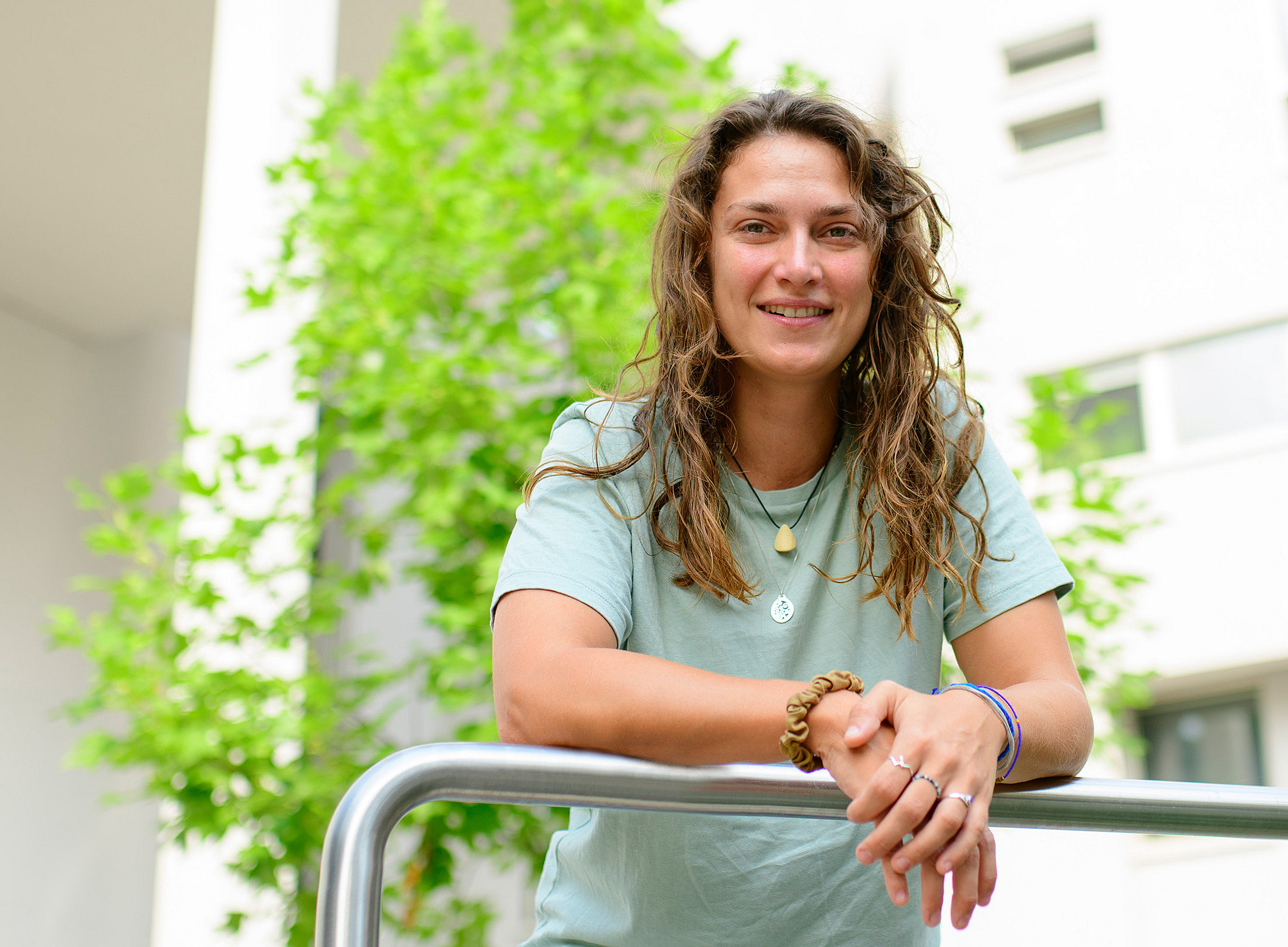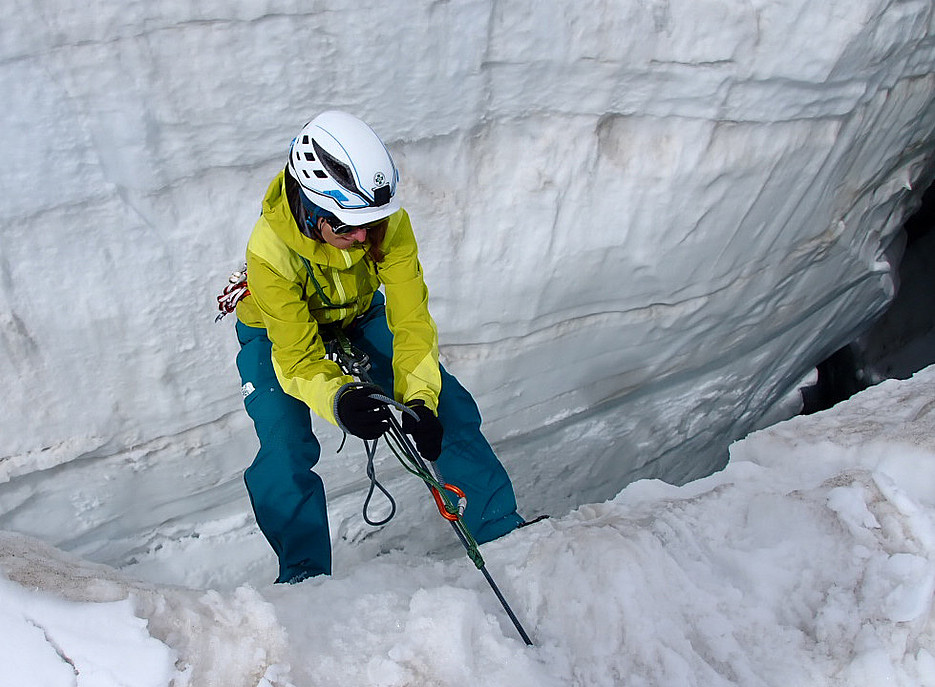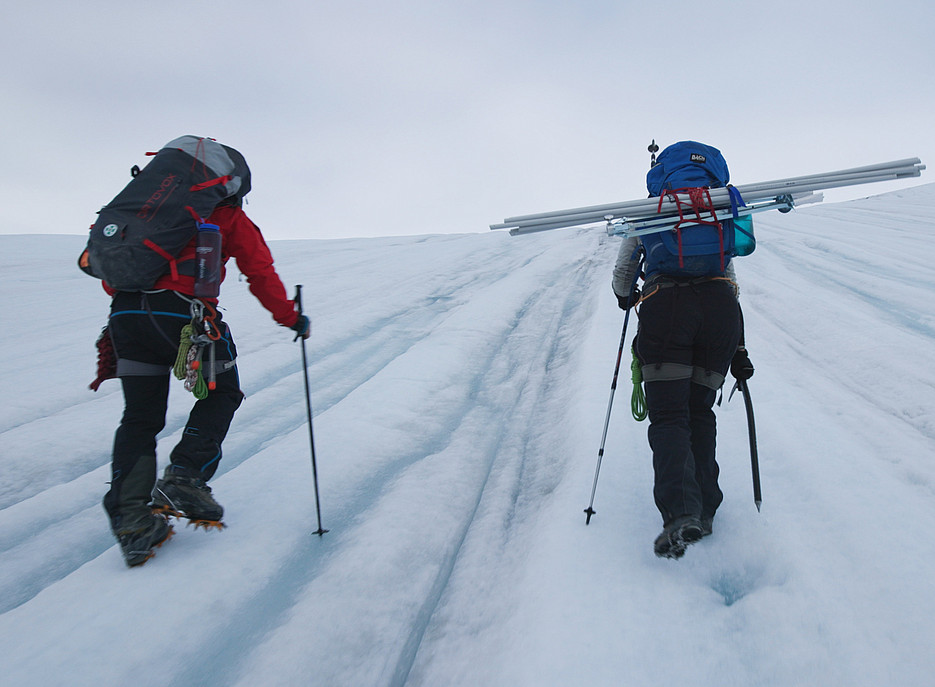Florina Schalamon had already become interested in the Arctic during her bachelor's degree in physics in Mainz/Germany. The first time she went on a polar expedition was during her Master's degree in Meteorology. A stay abroad at the Svalbard University Center in Spitsbergen/Norway gave her ample opportunity for field research. "It was fascinating and exciting," says the scientist, who loves going on expeditions. She is now part of the team led by Jakob Abermann, Professor at the Institute of Geography and Spatial Research at the University of Graz.
Looking to the future with historical data
For her dissertation, Schalamon is investigating how various climate factors affect the Greenland ice and how these relationships have changed over the last century. "The ice on the world's largest island has a significant influence on the global sea level, which is why it is so important to closely monitor what is happening," explains Schalamon. In her research, she can draw on unique historical data from the world-famous meteorologist and geophysicist Alfred Wegener. The professor at the University of Graz collected this data on his last expedition to Greenland, during which he died in 1930. The two years of the expedition coincided with an exceptionally warm period. The records are therefore well suited for comparison with current measurements. "We want to find out exactly how climate developments influence the glaciers and whether the mutual interactions are stable over time. I am currently comparing which weather systems prevail during the two warm periods and how often, and how this influences the air temperature. Of course, this always has an impact on the ice masses. If we understand this interaction better, we can also better predict future developments," says the researcher.
Bad climate for female polar researchers
Polar research is dependent on scientific work in the field. Compared to Wegener's time, expeditions today involve fewer hardships and dangers due to technical progress. However, they are still challenging, and not just because of the harsh nature. For women in particular, hierarchical, patriarchal structures and a lack of privacy can lead to additional stress. And thus to negative experiences, as Florina Schalamon knows. "Unconscious stereotypical role behavior and a lack of appreciation often make the work of female scientists more difficult. For example, there are cases where women are automatically assigned to prepare meals while the men sift through the collected data. Or that colleagues do not include them in scientific discussions," reports Schalamon. After all, everyday sexism is also present at the end of the world, and some topics relevant to women, such as menstruation, are still taboo. "Four out of five female colleagues have bad experiences in the field," says Schalamon, referring to the international survey she conducted together with researchers from Switzerland, Denmark, Canada, Australia, Ireland and England. The authors collected around 320 responses from female polar explorers from all over the world - most of them under the age of 40.
There is another way
The publication also presents concrete proposals for solutions. These range from the development of a code of conduct and corresponding training to a reporting system with consequences in the event of misconduct. "When selecting expedition participants, it would be important to pay attention to diversity as much as possible and to give people the opportunity to get to know each other in advance so that they can grow together as a team," adds Schalamon. In addition to the scientific objectives, important social and practical questions should also be clarified: Who will take on which tasks and at what intervals will they rotate? How do we treat each other respectfully? How do we address problems? What feedback options are available? Who takes on the role of a confidant? What do we eat? Where do we pee? Where do I have privacy? How do I deal with my menstruation? Where do we sleep? In short: What do we need to feel comfortable? If misconduct does occur in the field, it is important to talk about it with others instead of remaining silent and to support affected colleagues instead of looking the other way.
The study Coming in from the cold: Addressing the challenges experienced by women conducting remote polar fieldwork has been published in a special collection organised by the Association of Polar Early Career Scientists (APECS) and PLOS Climate.


